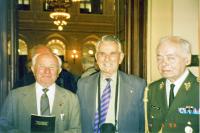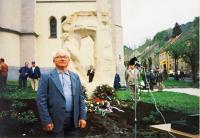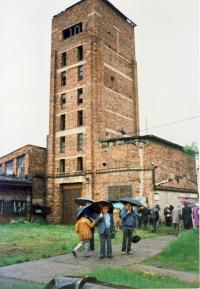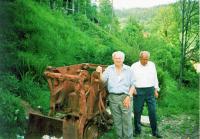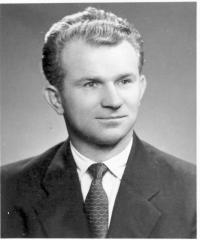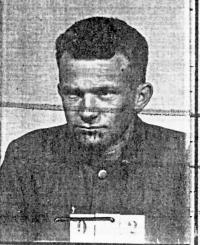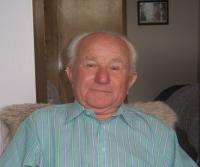“A strong exposure to radioactivity during the crushing of pitchblende brought along a terrible drumbeat in the head. It was a hard paid education.”
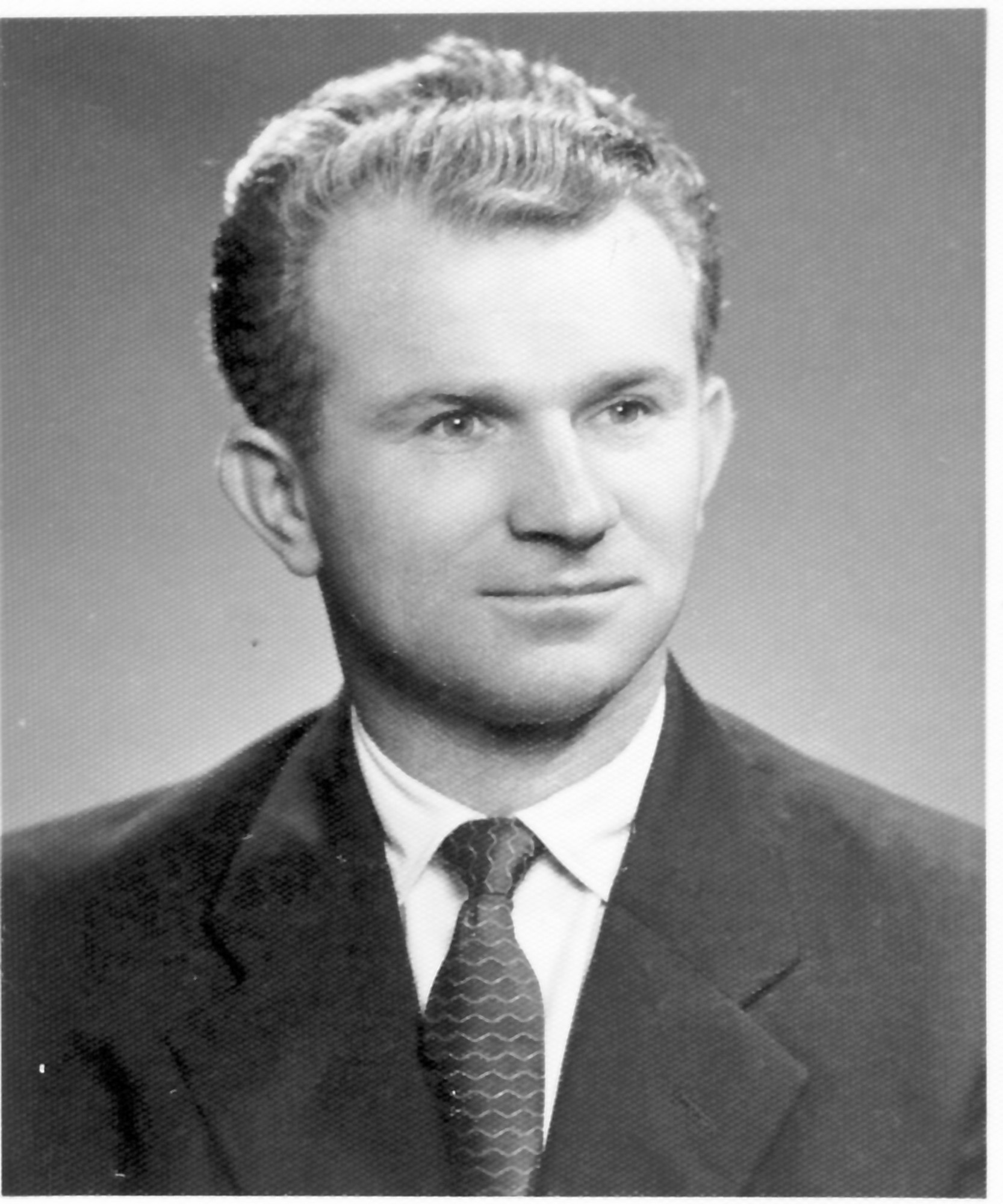
Download image
Josef Kovářík was born on 19th November 1927 in Jouet sur l´Aubois in France. During the war he studied in Brno to become a waiter and on 1st October 1949 he jointed up the military service in the 4th tank troop in Žatec, whose commandant was Captain Karel Sabela. Following a provocation organized by the Military defence news service in March 1949 the garrison of Žatec planning a tour to Prague was arrested and Captain Sabela was executed. Josef Kovářík was questioned in the so called Domeček (Little House) in Hradčany in Prague and for the military high treason sentenced to twelve years in prison. He served less than eleven years in uranium mines in the Jáchymov region and in February 1960 he was set free. During his Jáchymov “recreation” he went through the camps Vykmanov, Stará Mariánská, Svornost, Nikolaj and Rovnost. On Vykmanov he met the leader of the Prague uprising General Kutlvašr. He used to go from there to Drobilky where prisoners were exposed to a strong impingement of radioactivity during the crushing of pitchblende. On Svornost Josef Kovářík experienced the flight of two prisoners who were afterwards mercilessly shot and exhibited in front of the other prisoners as a deterrent example. On Nikolaj he spent his worst moments during the parades in frosts of twenty degrees below zero and marches of the prisoners to the mines. He was set free to the civil life from Rovnost and until his retirement he worked as a digger man. Nowadays he takes part in the talks with political prisoners and he is an active member of the Confederation of political prisoners.
